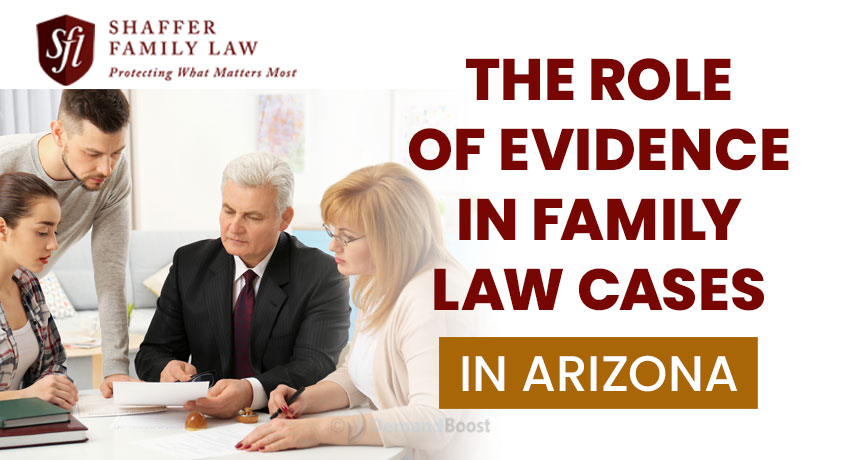In every divorce, there are two sides to the story—yours and your soon-to-be ex-spouse’s. Each perspective is shaped by years of shared experiences, conflict, and personal emotions. While those stories may differ, when disputes over property division, child custody, spousal support, or legal decision-making can’t be resolved through mediation or negotiation, the court steps in to make a decision—based on facts, not feelings. Judges rely heavily on evidence to determine the facts of the case and to make fair, informed rulings. Evidence lays the groundwork for establishing credibility, supporting your claims, and challenging opposing arguments.
In these situations, the evidence you present becomes the foundation for protecting your rights and ensuring your side of the story is heard. At Shaffer Family Law, we’re here to help you do exactly that. We work closely with you to gather, preserve, and present clear, compelling evidence that strengthens your case and supports your best interests. Because when your future is on the line, every detail matters.
Common Types of Evidence Used in Arizona Family Law Cases
Evidence in family law cases can take many forms, but here are some of the most common types we see presented in court:
- Financial Documents: Financial matters are often at the heart of many divorces. Tax returns, pay stubs, bank statements, credit card reports, and property appraisals provide the court with a comprehensive picture of each party’s income, assets, and debts.
- Communication Records: The way you correspond with your ex-spouse—through emails, text messages, letters, audio recordings, or voicemails—can reveal patterns of cooperation, conflict, or behavior that may influence custody, parenting time, and support decisions.
- Social Media: Social media activity—including posts, photos, reels, comments, or even being tagged in someone else’s content—can serve as evidence of a spouse’s habits, behavior, and potential violations of court orders.
- Witness Testimony: Testimony from friends, family members, coworkers, or counselors brings a human perspective to the case. These personal accounts can validate one party’s claims, clarify disputed situations, and play a key role in shaping the court’s decisions.
- Expert Reports: Expert testimony provides clear, unbiased insight into complex issues such as psychological evaluations, financial assessments, property valuations, and child custody matters—helping the court make informed and fair decisions.
- Physical Evidence: Photos, videos, or medical records can document abuse, neglect, injuries, or living conditions that impact custody or protection orders.
- Parent-Child Relationship: Records of consistent involvement—like attending school events, medical appointments, or extracurricular activities—can support your claim of being an engaged and responsible parent.
Let Shaffer Family Law Be Your Trusted Partner in Navigating Family Law Matters in Arizona
In Arizona family law cases, evidence can significantly influence the outcome—but simply having it isn’t enough. The real impact lies in how effectively it’s gathered, organized, and presented in court. And not all evidence is admissible—unauthorized recordings, hearsay, or improperly obtained materials can be excluded and even weaken your position. That’s why partnering with a knowledgeable Arizona family law attorney matters. At Shaffer Family Law, we know how to build a strong, persuasive case that aligns with Arizona law, ensuring your side of the story is clearly understood and powerfully represented.
No matter where you are in the divorce process, whether you’re just getting started, have already served your ex, or are preparing for court, Shaffer Family Law is here to protect your rights and help secure the best possible outcome for you and your family. Call (480) 470-3030 today or schedule your consultation online to take the next step forward.
Sources:
https://hellodivorce.com/ready-for-divorce/guide-to-presenting-evidence-in-family-court
https://natlawreview.com/article/navigating-divorce-key-evidence-strategies-family-law-cases

